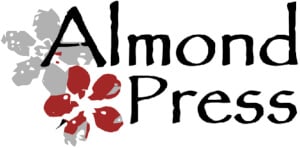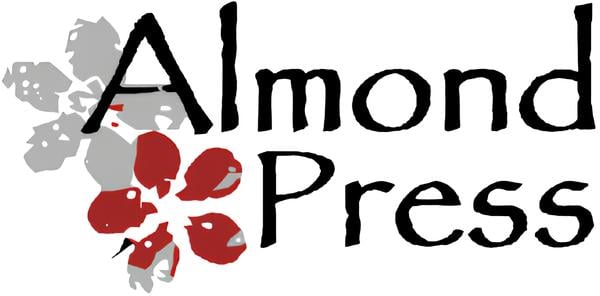Self-Publishing vs. Conventional Publishing: What to Choose
So you want to get your book published. The good news is that you have plenty of options. You could go for self-publishing, conventional publishing, also known as traditional publishing, and so many other publishing modes in-between that tend to blur the lines and make everything seamlessly blend in. The bad news is that you’ve got so many potential paths before you that it’s easy to get confused on what to do. That, my friend, is the curse of having too many options. And that’s why articles like this one exist: they tell you what you need to know so you can see the forest from the trees and make a more informed choice.
To publish or to be published?
Thomas Hayes, an expert essay writer, author of several top resume writing services, and a partner at many prestigious publishing and marketing firms, understands how the arcane world of publishing works and has quite a lot to say about the eternal question that faces every newbie writer.
“We live in a digital world. What that means is that we all get plenty of options when it comes to sharing our work. This is especially true for those who want their thoughts and ideas turned into books, whether physical or digital. The thing is, though, that while everyone can write a book or have a book written for them, not everyone is going to be accepted by a conventional publisher.”
Conventional Publishing
So what, exactly, is conventional publishing all about? Basically, the publisher will read your proposal, if you’re writing a non-fiction book, or manuscript if you’re writing a work of fiction. Basically, you should think of the publisher as an investor and your book idea or manuscript as the investment. The publisher will invest their money, in the form of an advance to you against the money the book will earn in the future, and their labor, in the form of staff time.
The labor investment will entail quite a lot of things, including the editing of the book, the design of the book cover, the proofreading and copy-editing of the book, the marketing of the book and the distribution and sale of the book across multiple sales channels.
Publishers are in the business of publicizing, and that is something they have grown really good at over the many years they have existed. A publisher will employ a plethora of strategies to get your book the publicity it needs, from marketing online to getting you to do a book tour in bookstores and reading clubs for public readings.
Most of these strategies have been around for years and haven’t been changed much by the onset of the digital age. If anything, rather than render the publisher obsolete, the digital age has only given him or her more options and more distribution channels to get a book out to the masses.
The Investment of Reputation
Perhaps the greatest investment that the conventional publisher is really making is that of credibility. It is staking its reputation on the writer. Publishing houses typically have a good track record of publishing good books that delight with and connect with readers. Such is the reputation that sometimes readers will buy a book, simply because they know that it comes from a particular publishing house. If the publisher publishes enough bad books, all of that credibility will be lost and the readership will shrink. That translates to a failing bottom line for the publisher.
This is one of the crucial differences between a traditional publishing house and a run of the mill publisher.
Christian Blake, a writer at various essay writing services, puts it more poetically. “When you’re working with a conventional publisher, they’re really investing in you. They’re staking their money, time, skill, and credibility on the future success of your book. You’re getting published. When you self-publish, you might go to a publisher, but you won’t get published, you’ll just be working with a publisher,”
Self-Publishing
Now, if you decide to self-publish, then you should be prepared to face some challenges that you wouldn’t have to worry about if you were getting published the conventional way.
For starters, many bookstores, media companies, and awards organizations only consider traditional publishers for coverage. They won’t look twice at self-published books. To be sure, this is a trend that is slowly turning around, but it is slow in the turning.
There are also advantages to going the self-publishing route. For one, you will have much more control over the book and have a lesser risk of someone hijacking your idea. Often, when getting published, the author has to change so many things about their initial idea or manuscript that, by the time the final product is out of the gate, they cannot recognize it! You won’t have that issue when self-publishing.
You will also get more of the profits you make from the sale of your book. If you’re really good at promoting yourself, then you can do it inexpensively using the online channels we have today, especially social media.
The trick to successful self-publishing is to be entrepreneurial. You will be fully responsible for the success or failure of your book, so you can’t afford to slack.
“There are certain decisions that a self-publisher has to make way before they actually begin the process of publishing, or even writing a book,” says Rachael Leigh, a researcher at Dissertation Help.
“You’ll have to figure out your why for the book. Why do you want to create it? That’s how you’ll figure out who the target audience is, the right title, how to reach the audience, and how to price the book. You’ll also have to decide how much time and money you’re willing to put into the book.”
Specifying a Self-Publishing Contract
In case you decide to self-publish, you’ll probably have to get into some kind of legal agreement with the publisher you choose. There are important things to look out for in that contract. They include the following:
- Any copyright over the work must be in your name, no matter who is actually handling the registration of that work.
- There will probably be a “publishing rights” clause in the contract. You should be very wary of the language used in this clause. For example, “Publisher has exclusive rights to publish this work in any form or format” is a trap you want to avoid at all costs. It basically means that the company publishing your work has all control over the publishing of your book. This could even give them all of the income from your book sales if they sold those publishing rights to, say, a conventional publisher.
- You should also be careful about what the contract means when it uses words like “publicity”, “marketing”, or “selling”. These could mean nothing more than listing your book with a few book wholesalers and online retailers. You might feel shortchanged by a publisher that isn’t helping you much with the marketing of your book, and they might point out that the contract did not obligate them to do so. It is therefore important that the contract layout the definition of such terms clearly.
- Terms like “book format” should also be well defined. Do they mean e-books? Printed copies? Both?
To be entirely sure that you’ve got your bases covered, it is a good idea to pay a lawyer with experience in self-publishing contract to review the contract before signing.
Things you can do to help with Self-Publishing
The trick is to build relationships. As long as you can build relationships with all the right people, you will have a much easier time selling your self-published books. People you should build relationships include the following:
- Booksellers: Be a regular customer of theirs and they’ll value you enough to want to give you a chance when you want to sell.
- Librarians: Patronize their libraries.
- Sites like Goodreads: Become an active member of the online community and build relationships there.
- Readers: go where you readers are, from forums to social media groups too reading clubs. Focus on your genre and get to know what people like. It will give you a clue on what to write.
You should also seek to build up your reputation as an authority in your niche. Speak at events, write a blog, talk about your book in passing at these events. Find a way to collect email addresses. You can then launch a full ad campaign when you’re marketing your book and do some email marketing with those email addresses. Have a good landing page and a smooth checkout system for those seeking to buy your book.
Conclusion
Whatever you do, never edit your own work. You should always hire a professional editor to go through your work and make sure it’s professional. You should also consider getting someone else to choose the title of the book, as opposed to you since you’re too close to the work.
There are pros and cons to both conventional publishing and self-publishing. Your choice will depend on your personal goals. However, whichever you choose, understand that there are rules to the game that will help you succeed. Follow them and you’re good to go!
- Self-Publishing vs. Conventional Publishing: What to Choose - July 3, 2020


